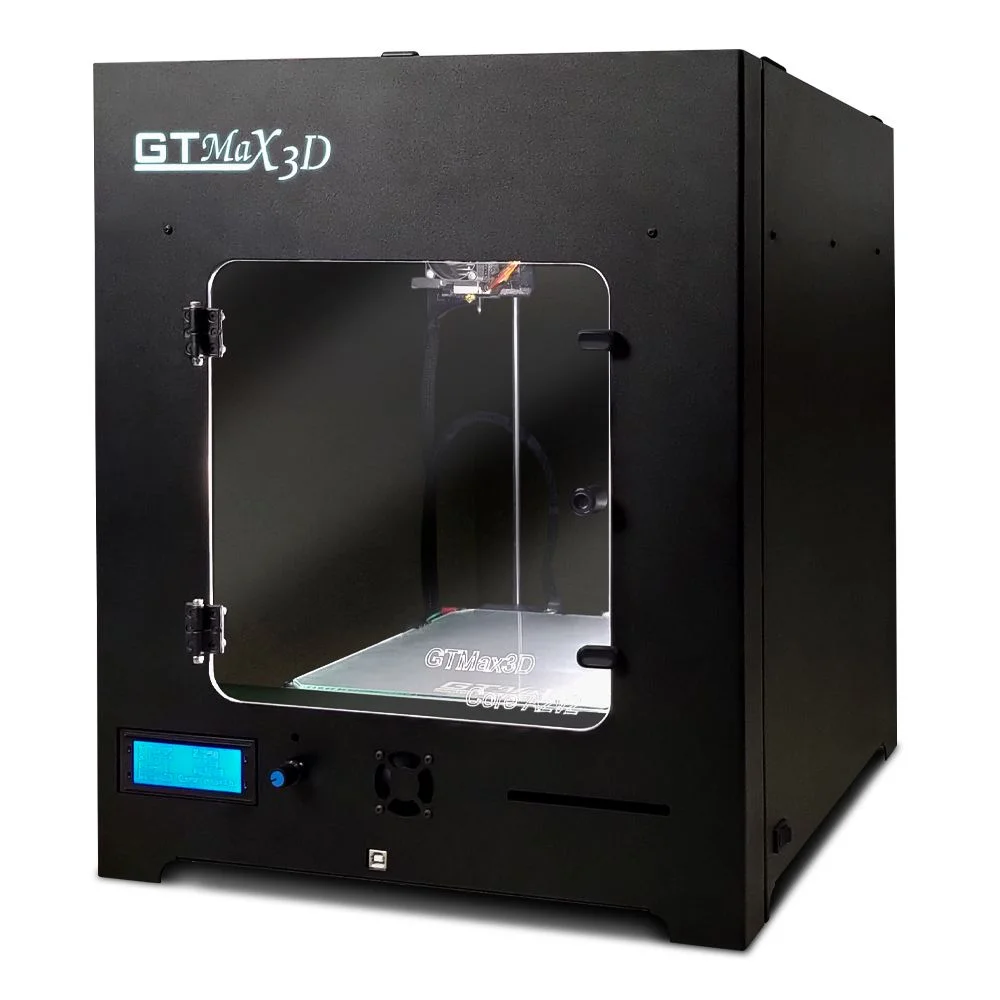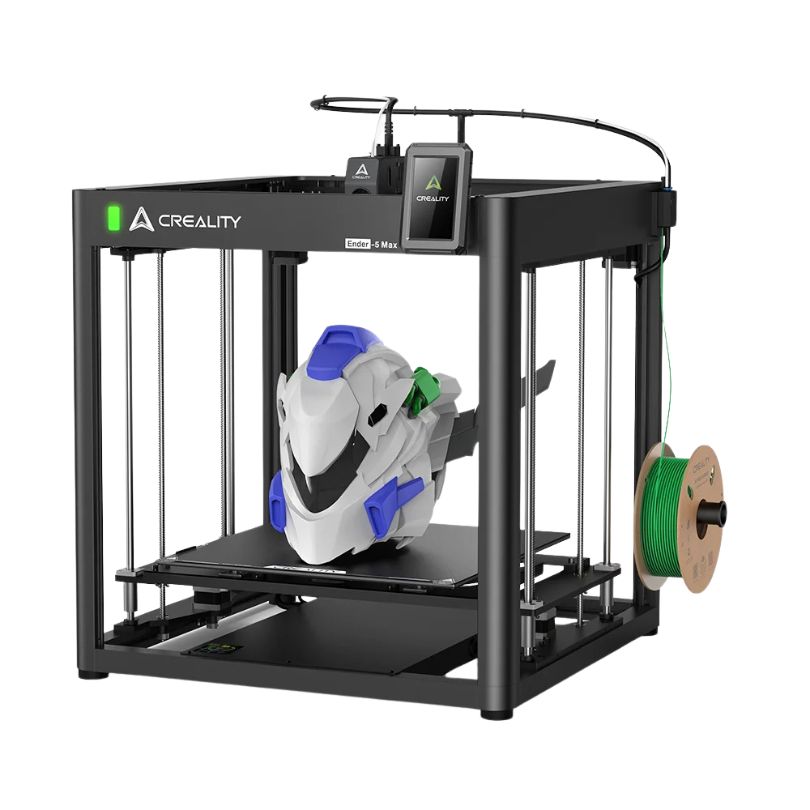Compare Core A2V2 vs Ender 5 Max
Comparison between the best 3D printers
Choose the best 3D printer at the best price. The cheapest 3D printers are here.
Buy a 3D printer here with 3D Fila.
 |
 |
|
| Model | Core A2V2 |
Ender 5 Max |
| Printing Material | Filament | Filament |
| Buy Filament for GTMax Core A2V2 | Buy Filament forCreality Ender 5 Max | |
| Estimated price | $684,00 | $769,00 |
| Manufacturer | GTMax | Creality |
| Release Year | 2019 | 2025 |
| Print Volume [mm] | 220x220x240 | 400x400x400 |
| Printer Size [mm] | 425x460x512 | 649x721x850 |
| Weight [kg] | 25,9 | |
| Power Loss Recovery | YES | YES |
| Enclosed printer | YES | NO |
| Bed Leveling | Automatic | |
| Filament End Sensor | YES | YES |
| Bed type | Heated | Heated |
| Power supply system | Bowden | Direct Drive |
| Standard nozzle | 0,4 | 0,4 |
| Maximum Nozzle Temperature [°C] | 295 | 300 |
| Maximum Bed Temperature [°C] | 135 | 100 |
| Maximum printing speed [mm/s] | 150 | 700 |
| Filament holder | YES | YES |
| Camera for supervision | NO | NO |
| Recommended filaments | PLA, PETG, Tritan, Flex, ABS | Hyper PLA/PLA/PETG/TPU95A/ABS/ASA/PLA-CF/PA/PLA-Silk |
| Recommended slicers | Cura, Simplify, Slic3r, IdeaMaker | Creality Print 5.1 |
| Maximum Resolution [mm] | 0,05 | 0,1 |
| Processor | ||
| Display | Mono | Touchscreen 4,3'' |
| Power Supply | 1250 W | |
| Connectivity | SD / USB | USB, Wifi |
| Operating systems | Windows, Mac, Linux | Windows |
| Date of registration in the system | 2022-11-12 | 2025-02-18 |
| Release date | 2019 | 2025 |
| Extra features | The GTMax3D ProCore A2v2 is a compact and robust 3D printer with a printing area of ??220 x 220 x 240 mm. It offers high print quality, ranging from 0.05 mm to 0.32 mm. Its features include automatic filament detection and changing, travel speed of up to 300 mm/s, and a heated aluminum bed with a glass top. It has automatic bed leveling with 16 points and an all-metal hotend that reaches up to 298°C. The printer has a carbon steel frame with electrostatic painting, is automatic bivolt and has connectivity via USB and SD card. The Bowden system and core xy kinematics complete its advanced features. | The Ender 5 Max by Creality features a 400 x 400 x 400 mm build volume, a rigid aluminum frame, and 36-point auto bed leveling. With speeds up to 700 mm/s, it boasts a hardened dual-gear extruder and a 1000W heated bed, reaching 80°C in just 200 seconds. It supports remote management via WLAN, a tri-color status indicator, and quiet operation, making it ideal for high-precision, high-productivity 3D printing. |
| Support for multiple colors and materials (AMS and CFS) | NO | NO |
Notes * |
||
| Cost-benefit | 6 / 10 | 7 / 10 |
| Hardware | 2.5 / 10 | 4.5 / 10 |
| Tela | . | . |
| Print volume | 3 / 10 | 4 / 10 |
| Performance | 1 / 10 | 6 / 10 |
Conclusion |
| In comparing the Core A2V2 and the Ender 5 Max, both printers bring unique qualities that cater to different needs in the 3D printing space. The Core A2V2, released in 2019, is a compact and robust printer with an enclosed design, making it suitable for printing a variety of materials. Its automatic bed leveling and advanced features like filament detection enhance user convenience. However, its print volume of 220x220x240 mm and lower maximum printing speed limit its production capabilities compared to competitors. On the other hand, the Ender 5 Max, newer and more advanced with a release year of 2025, offers a significantly larger print volume (400x400x400 mm) and faster printing speeds. Its open-frame design allows for easy access while still incorporating auto bed leveling and a direct drive system for better filament handling. While it lacks certain features like an enclosed print area or advanced connectivity options seen in other high-end models, it excels in performance and productivity. In terms of value, the Core A2V2 presents a more budget-friendly option, but at the expense of size and speed. The Ender 5 Max, albeit pricier, justifies its cost with superior capabilities and build size. Ultimately, the best choice depends on the user’s specific needs: if compactness and user-friendly features are paramount, the Core A2V2 is a strong contender; however, for those prioritizing scale and speed without budget constraints, the Ender 5 Max is the clear winner. Thus, each printer has its strengths, and the decision should align with the user’s intended applications and budget considerations. |

